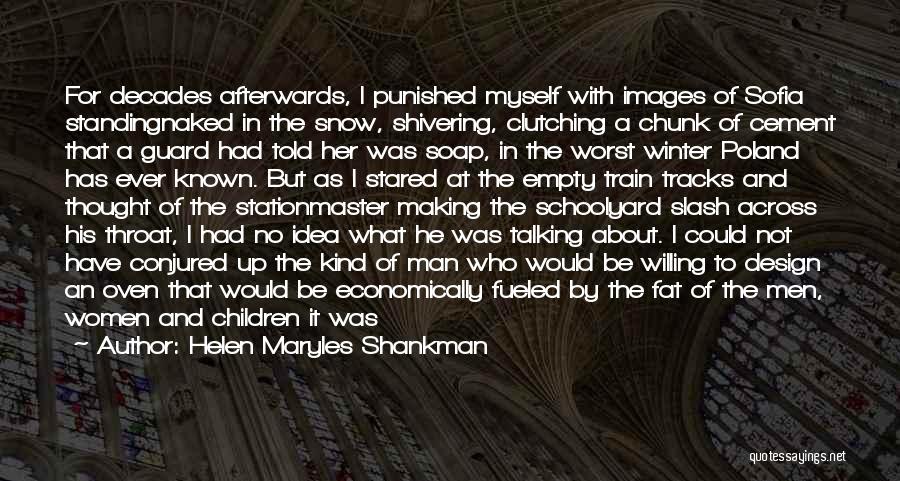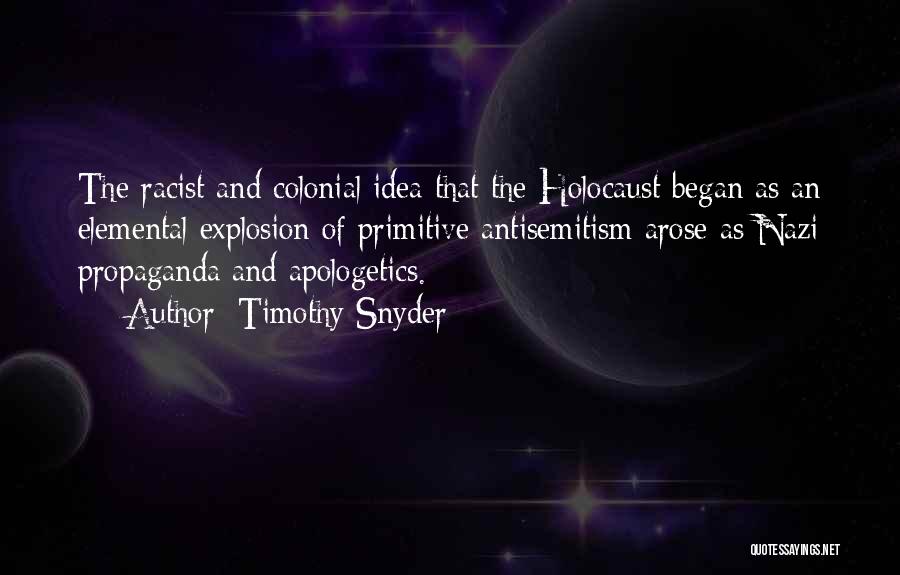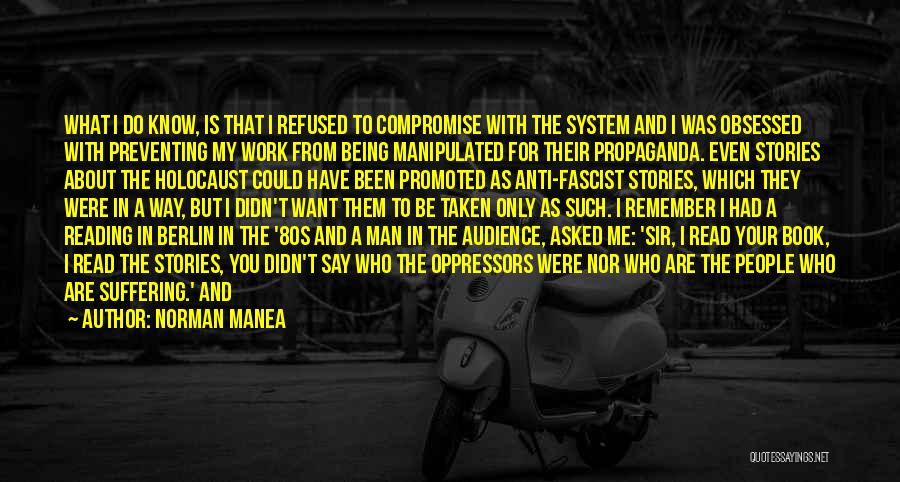Quotes & Sayings About Holocaust Propaganda
Enjoy reading and share 4 famous quotes about Holocaust Propaganda with everyone.
Top Holocaust Propaganda Quotes

The evil of the Holocaust was realized through the exercise of a certain kind of power - coercive power. It was a power that sought to dominate and control. It was a power legitimated through law, buttressed by propaganda, augmented by terror, and affected through all the institutions of society. — Mary Jo Leddy

For decades afterwards, I punished myself with images of Sofia standing
naked in the snow, shivering, clutching a chunk of cement that a guard had told her was soap, in the worst winter Poland has ever known. But as I stared at the empty train tracks and thought of the stationmaster making the schoolyard slash across his throat, I had no idea what he was talking about. I could not have conjured up the kind of man who would be willing to design an oven that would be economically fueled by the fat of the men, women and children it was burning. I would not have believed that these same engineers would find other men willing to carry out their monstrous plans. I, too, would have dismissed it as propaganda, that one kind of human being could industriously collect and kill six million of another kind of human being. Somewhere along the line, there would have to be someone who said no.
Forgive me, Sofia. Forgive me, Isaiah. I did not know. — Helen Maryles Shankman

The racist and colonial idea that the Holocaust began as an elemental explosion of primitive antisemitism arose as Nazi propaganda and apologetics. — Timothy Snyder

What I do know, is that I refused to compromise with the system and I was obsessed with preventing my work from being manipulated for their propaganda. Even stories about the Holocaust could have been promoted as anti-fascist stories, which they were in a way, but I didn't want them to be taken only as such. I remember I had a reading in Berlin in the '80s and a man in the audience, asked me: 'Sir, I read your book, I read the stories, you didn't say who the oppressors were nor who are the people who are suffering.' And I said, 'No, I didn't.' It was important to me that a Vietnamese reader reading a story about a young boy who is in a camp, can recognize himself, without me saying: the boy is a Jew, the oppressor is a Romanian, or a Nazi, and so on. I wanted to have a more universal approach. — Norman Manea





